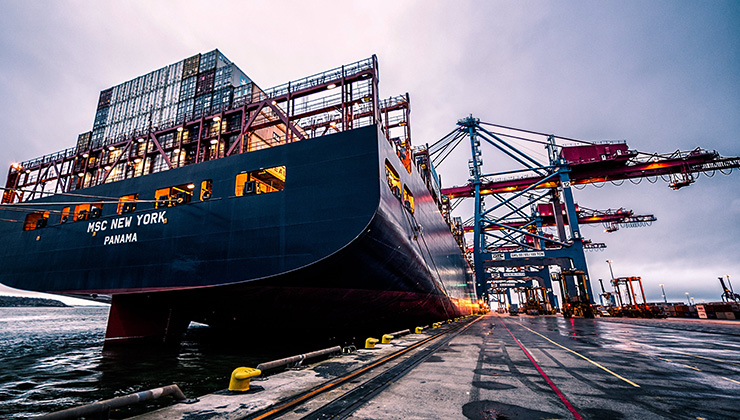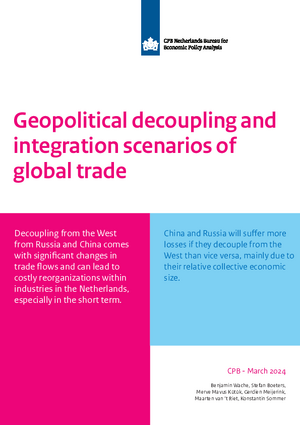Geopolitical decoupling and integration scenarios of global trade
Geopolitical trade restrictions significantly impact the Dutch economy, with notable differences across industries

This study by the CPB examines the economic ramifications of a scenario in which the United States, the European Union, and seven other nations (collectively, the West) economically disengage from Russia and China.
The effect of decoupling on the Dutch economy varies across industries. Certain industries may boost their production to offset the loss of goods usually imported from Russia and China, such as in mining, textiles, and electronics. Conversely, industries like refineries are likely to raise prices due to the unavailability or increased cost of intermediate inputs previously imported from these two countries. The study also indicates that industries heavily engaged in trade with Russia and China, including transportation and wholesale services, will face the most significant challenges from decoupling, losing access to crucial export markets.
Long-term implications
For the Dutch economy overall, decoupling presents a negative long-term impact, although no more or less severely than for other Western nations. Eastern European countries, having stronger current trade ties with Russia and China, will face relatively more adverse effects. Both China and Russia are expected to endure greater economic damage than the West, given the collective economic size of Western countries. Severing trade ties means both nations lose access to a substantial portion of the global economy.
Decoupling will redirect trade flows towards 'third countries' like Mexico and Turkey, with some trade shifting to 'friendly nations' (friendshoring), including the US and within the EU. These countries might experience an increase in exports and GDP due to trade reorientation, though fully replacing China's dominant role in global trade is unlikely in the short term. Not all goods and services produced by China can be immediately replaced.
Facts and figures
Of all the goods and services produced in the West, 1.6% are exported to Russia and China, with the reverse figure standing at 3.2%. In added value terms, the Western economy is three times as large as that of Russia and China, and 2.5 times larger than the rest of the world's. The Netherlands contributes 1.7% to the total added value of the West.
Downloads
Authors






